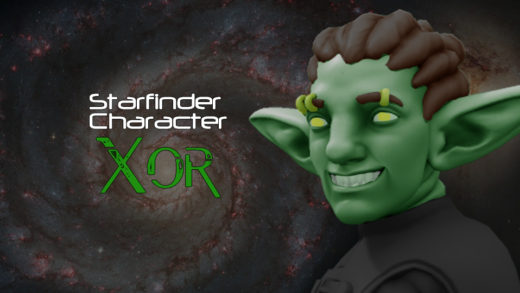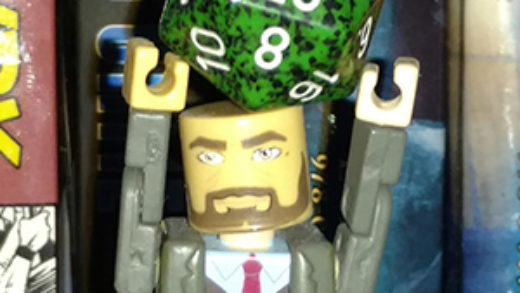A largely untouched genre in RPGs is the reconstruction setting, in which the world is beginning to restore itself after a generation or more of extreme strife. In today’s column I present four broad rebuilding settings and offer some options for player character activities.
Post-Post-Apocalypse
The apocalypse comes in many flavors: nuclear fallout, viral infections, natural disasters, and the rapture—to name a few. The population is greatly reduced and technology and resources are scarce. Given time, the population will rebuild and re-purpose or replenish their needs. The world may be changed, but the fallout of the apocalypse can’t last forever. The post-post-apocalypse setting may still have its hardships, but it seeks to overcome the losses and rise above the brutal mentality of individual survival that may have reigned for decades.
In a post-post-apocalypse player characters can be founding members of a territory, helping to plan the growth of a city while dealing with politics and internal struggles—and perhaps orchestrating a rule. For more action/exploratory adventures, the characters could be assigned to find and resources in a still-hostile environment. For a combination of exploration and politics, the player characters may be assigned to establish trade routes across harsh terrain between their home and other new settlements; with each new community dealing with their own governments and problems.
Post-Dystopia
The rebuilding following the apocalypse may have given rise to a , where the few have much and the people have little. Or it could be that there was no calamity; corporations or government simply rose to keep the people down… until the revolution. Post-Dystopia is a setting that takes place directly after the fall of an established, controlling power.
Like post-post-apocalyptic settings, player characters are likely to be the new leaders of the people, quelling smaller uprisings and establishing trust. It may be that while the previous establishment had much there is still not enough to distribute to all and the characters must weigh the value of various lives while struggling not to become the same empire they just abolished.
Cyberpunk to Space
In this setting mega-corporations may still have a stranglehold on Earth, but their reach falters in the expanse of space. Space is a difficult, uncaring environment where mineral resources may be plentiful, but life-sustaining resources are rare. Small colonies on the Moon, Mars, and even distant Europa each live under their own rule, either completely free or only loosely governed by the leadership of the cramped squalor on Earth. While the establishments may be new, people are rebuilding their small societies and ways of thinking, reestablishing hope for new future.
No longer confined to cities player characters are, instead, in the wilderness of harsh planets, moons, or asteroids. Like the Old West, they may be prospectors, seeking mineral veins to trade for supplies to enrich their new homes. They could also be diplomats, handling peace talks or deals with other space colonies; or returning to Earth to secure contracts for their homes with the Mega-Corporations (and to remind them that as difficult as space might be their lives are still better off-planet).
Endless War Ended
Alien invasion, robot uprising, kaiju incursions… No matter what the strife, the wars have lasted seemingly forever, changing the world as we know it. Then, through peace or victory, the war is finally over. This is an environment that may not be low on resources, but where those resources need to be re-purposed for peace. The population may suffer post-traumatic stress; after a lifetime of battle they’re learning to be comfortable for the first time.
This can be a deeply character-driven campaign, with player characters not in any role of rebuilding society but simply rebuilding themselves, acting as a support group. Characters may also be on a clean-up crew, either fighting small battles against the last pockets of their enemies or picking through battlefields for items to re-purpose. If the war ended in a treaty, some or all player characters could have been from the “losing side,” proving themselves no longer a threat while dealing with prejudice and hostility from some of the populace.


Recent Comments